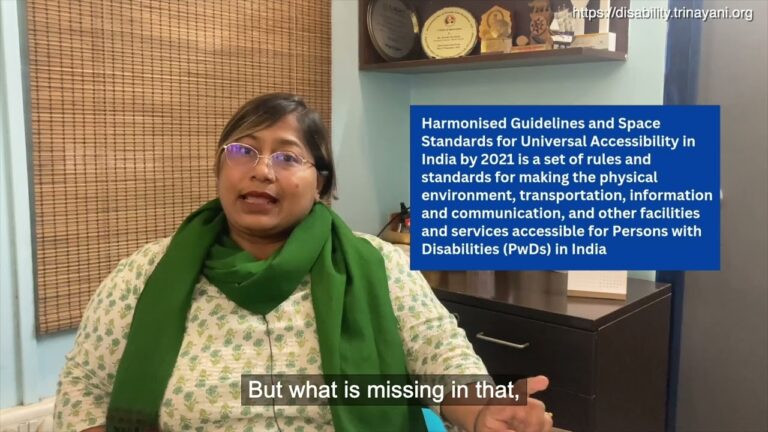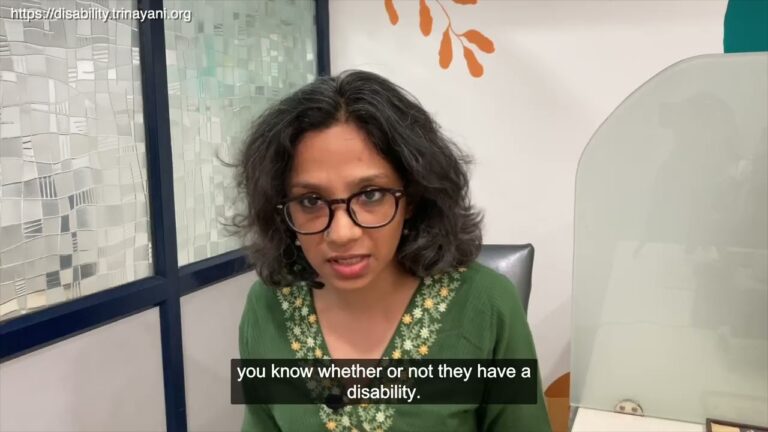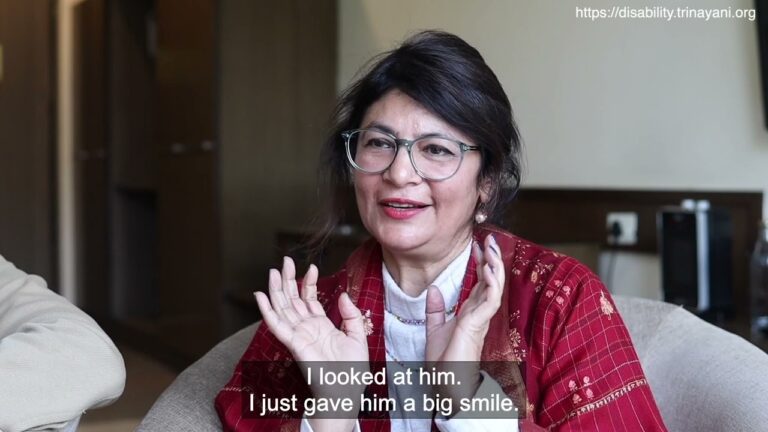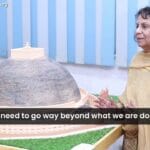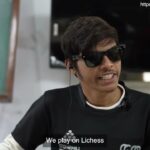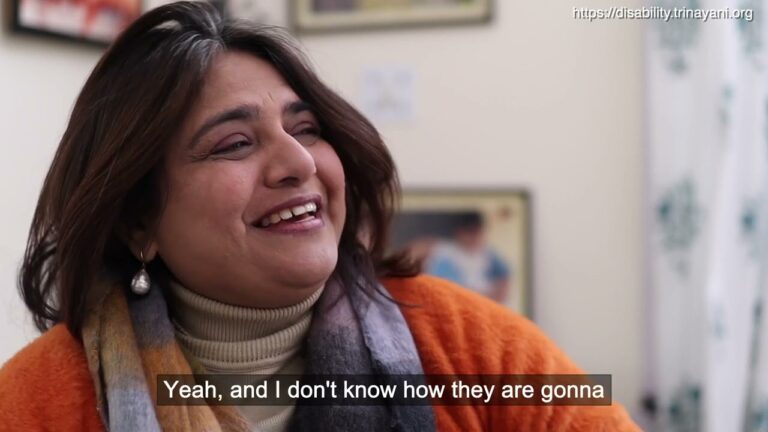Para Rowing – Colonel Dutta – Changing lives
In this film, Colonel Dutta, Chairperson of Para-Rowing for the Rowing Federation of India, shares his views as an amputee on how sports can become a pivotal part of someone’s life.
Through his work with the Rowing Federation of India, Colonel Dutta trains civilians, army personnel, and also children with disabilities in rowing, aiming to propel them forward in the world through sports.
This film highlights the stories of athletes with disabilities and spreads a clear message: sports can bring about significant change in anyone’s life, regardless of disability. Watch this film to discover how sports can break down barriers and empower individuals to achieve their full potential.
I am Colonel Dutta, Chairperson, Para-Rowing, Rowing Federation of India and a member of the World Rowing Federation, Para-Rowing Commission.
Sports have played a very important part in my journey as an amputee.
Even though I was a sportsman from childhood, enjoyed games, learned a lot of sports, but after my injury, I was a little lost.
I didn’t know what to do or how my life would progress from there.
There were a lot of questions on my mind.
I stayed in Pune for 10 months and thought about the future. Then in 2009 I got a chance to participate in a golf tournament organized by Amputee Wheelchair Sports Federation.
I won a bronze medal in that tournament and my team won gold.
When I saw the Indian team there, I realized that there was little representation from the Indian army in the team, except for the three of us.
Whereas every year, many young officers and jawans end up losing a limb during operations or after an injury.
There are these amputee Indian officers.
Even if they don’t have a hand today, they were considered among the strongest just a day before.
Does he become worthless just a day later?
Therefore, some of us officers made an effort and discussed with the organization, and they agreed with us.
As a result, in 2018, the Army Paralympic Node was established in Pune.
And since I was the one who had initiated this venture, and I knew all the facts around it, I was told to set up the node.
In the Army Paralympic Node, sports training is provided to Indian soldiers and officers who have lost a limb during operations. They further go on to represent India in international sporting events.
When an officer gets injured at first, they often have a negative mindset and may think that their life is now meaningless.
They wonder what they’ll do now as they can’t even work on the farm.
They think of themselves as a burden to their family.
But as they earn their medals, at national and then international levels, with some athletes even reaching the Paralympic Games, their mindsets changed.
The mindset of their families and their environment also changed.
The mindsets of the people from their villages and everyone around them started changing, regarding them and disability too.
This is for the soldiers who are serving.
The ones who have retired from the force, especially the ones with 100% spinal cord injuries and are required to use wheelchairs, they go to the Paraplegic Rehabilitation Center in Khadki where they are taken care of.
They are taught different skills there.
For someone interested in art, there are individuals there, who use their mouths to hold a pencil and draw and write
Additionally, at Queen Mary Technical Institute, which is an ITI, they receive technical training, so that they can be self-sufficient and have the capability to do something on their own.
Sports is a medium that can bring about significant change in any individual’s life.
After retiring from the army, I now oversee the para-rowing section on behalf of the Rowing Federation of India.
We train civilians, army personnel with disabilities, and even children in rowing, aiming to propel them forward in the world.
We also receive support from the Government of India.
A Technical Talent Identification Committee has been set up as well.
In my journey I have noticed that there are some people who have significant disabilities while others do not.
And the people who do not have a significant disability, like shortening in the ankle or in the muscles, believe me, after six months of training their condition improves such that they fall outside the minimum disability criteria of our sports.
Our work is for those who believe they are unable to do anything at all. Sports is a medium that can be embraced by persons with disabilities such as deafness, visual impairment, polio, or spinal cord injury.
Everyone gets an opportunity and can showcase their talents through sports.
We have all heard about Deepa Malik, who won a silver medal in Rio.
Then there’s Devendra Jhajharia, a two-time world record holder in javelin throw.
Today, our para-rowing team includes Narayan and Anita.
Anita stopped going outside her house after her injury. But after the first six months of her training her father called me up and said, “sir, your team has performed some kind of magic.”
I asked why and what had happened?
He said that the girl who wouldn’t step out of her house before, now has no hesitation going out with her friends, even wearing a skirt too.
These two have qualified for the Paris Paralympic Games in rowing.
And I’d be very happy if they could get a medal for this country.
It’s not just in sports, this concept of falling down and getting back up applies to our entire lives as well.
Barriers and difficulties arise, but we overcome them and move forward.
Don’t suppress your emotions and your problems. Face them.
Face them boldly.
To persons with and without disabilities, and to caregivers and family members, I want to say: don’t worry.
The troubles that may arise, try to understand them with an open heart.
It’s important to understand the problem, the issue.
There’s another thing I’ve noticed in the disabled community, there is a reluctance to use assistive devices.
What I mean to say is, be it wheelchairs or crutches or any other assistive device, people tend to hide them.
Don’t hide it. That device is there to help you, to give you a better quality of life.
When you feel you have some problem, seek help from assistive devices, your loved ones or organizations established to support you, take assistance from each one of these. Utilize the assistance available from each of these resources.
You will get support.
How you choose to live your life depends upon you. However if you can embrace sports, to overcome your life challenges and achieve something, I will be absolutely delighted.
amputee sports, army paralympic node, assistive devices, disability advocacy, disability awareness, disability empowerment, disability mindset, disability representation, inclusion, para-athletes, para-rowing, paralympic athletes, Paralympic games, Paralympic medal winners, physical rehabilitation, polio survivors, Spinal cord injury, sports rehabilitation, Visual Impairment, wheelchair sports
Dive Deeper: More on Disability
Learn about the most common inquiries surrounding disability, education, legislation, accessibility, employment and other sectors related to disability.


